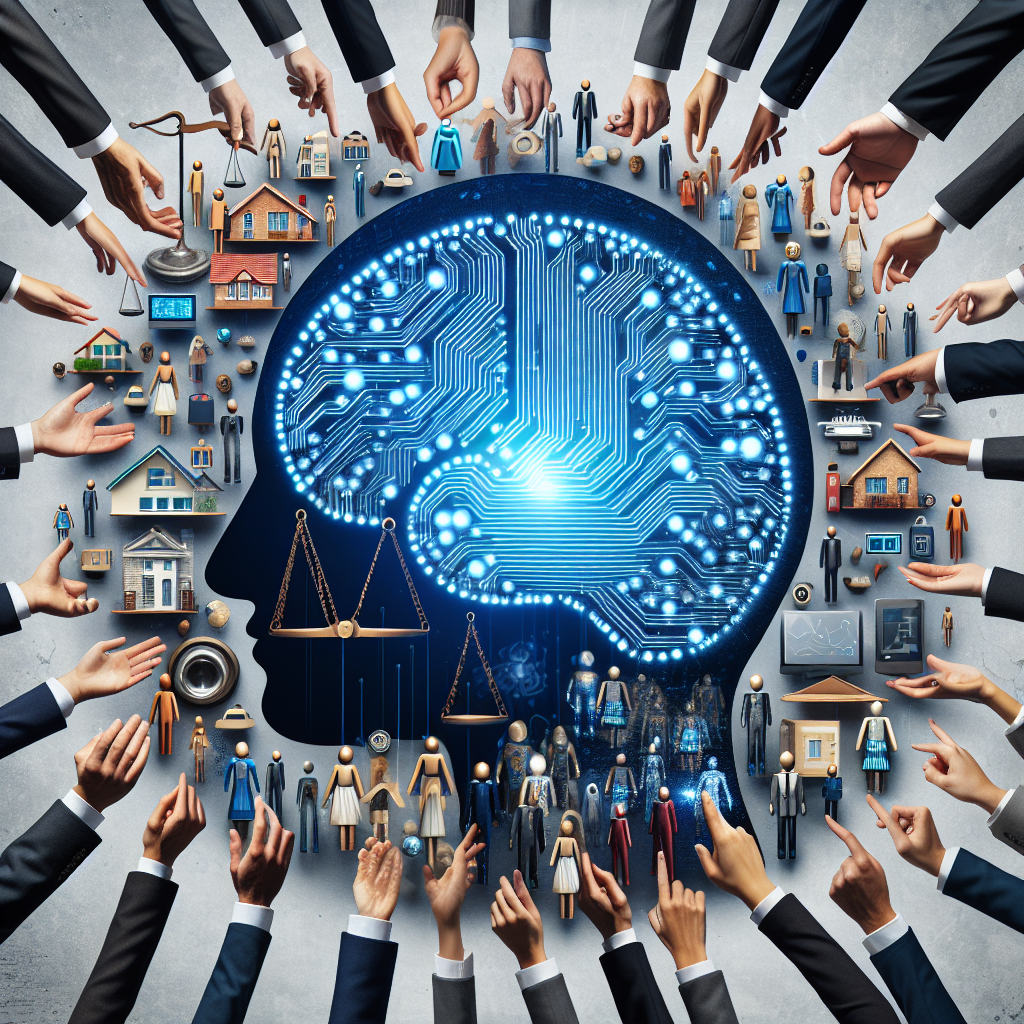In today’s rapidly advancing technological landscape, artificial intelligence (AI) is becoming increasingly integrated into various aspects of society. From healthcare to finance to transportation, AI is revolutionizing industries and improving efficiency and productivity. However, as AI becomes more prevalent, there is a growing concern about the ethical implications of its use. It is crucial for society to prioritize ethical considerations in the development and deployment of AI systems to ensure that they are used responsibly and in a way that benefits all members of society.
The importance of ethical AI in today’s society cannot be overstated. Ethical AI refers to the development and implementation of AI systems that are fair, transparent, and accountable. It involves ensuring that AI systems do not perpetuate bias or discrimination, protect privacy and data security, and are developed in a way that aligns with societal values and norms. By prioritizing ethics in AI development, we can ensure that AI systems are used in a way that benefits society as a whole and minimizes harm to individuals and communities.
One of the key reasons why ethical AI is essential is to prevent bias and discrimination in AI systems. AI systems are trained on vast amounts of data, and if that data is biased or discriminatory, the AI system itself will be biased as well. This can lead to harmful outcomes, such as perpetuating racial or gender stereotypes, or unfairly disadvantaging certain groups of people. By prioritizing ethics in AI development, we can ensure that AI systems are fair and unbiased, and do not perpetuate harmful stereotypes or discrimination.
Another important aspect of ethical AI is ensuring transparency and accountability in AI systems. AI systems are often complex and opaque, making it difficult for users to understand how they work and make decisions. This lack of transparency can lead to distrust in AI systems and hinder their acceptance and adoption in society. By prioritizing transparency and accountability in AI development, we can ensure that AI systems are explainable and accountable, and that users can understand how they work and make decisions.
Protecting privacy and data security is also a critical aspect of ethical AI. AI systems often rely on vast amounts of data to make decisions, and if that data is not properly protected, it can lead to privacy breaches and data leaks. By prioritizing privacy and data security in AI development, we can ensure that AI systems respect user privacy and protect sensitive data from unauthorized access or misuse.
Finally, ethical AI is important to ensure that AI systems are developed in a way that aligns with societal values and norms. AI has the potential to have a profound impact on society, and it is crucial that AI systems are developed in a way that benefits all members of society and upholds ethical principles. By prioritizing ethics in AI development, we can ensure that AI systems are used in a way that promotes social good and minimizes harm to individuals and communities.
In conclusion, the importance of ethical AI in today’s society cannot be overstated. By prioritizing ethics in AI development, we can ensure that AI systems are fair, transparent, and accountable, protect privacy and data security, and align with societal values and norms. Ethical AI is essential to ensure that AI systems are used responsibly and in a way that benefits all members of society. It is crucial that we prioritize ethics in AI development to ensure a future where AI is used for the greater good of society.
FAQs:
Q: What are some examples of ethical issues in AI?
A: Some examples of ethical issues in AI include bias and discrimination, lack of transparency and accountability, privacy and data security concerns, and ethical considerations in decision-making processes.
Q: How can we ensure that AI systems are developed ethically?
A: We can ensure that AI systems are developed ethically by prioritizing ethics in the design and development process, ensuring that AI systems are fair, transparent, and accountable, protecting privacy and data security, and aligning with societal values and norms.
Q: What are the benefits of ethical AI?
A: The benefits of ethical AI include fair and unbiased AI systems, transparent and accountable decision-making processes, protection of user privacy and data security, and alignment with societal values and norms.
Q: How can individuals and organizations promote ethical AI?
A: Individuals and organizations can promote ethical AI by prioritizing ethics in AI development, raising awareness about ethical issues in AI, advocating for ethical guidelines and standards, and holding developers and organizations accountable for ethical practices.
Q: What are some challenges in promoting ethical AI?
A: Some challenges in promoting ethical AI include lack of awareness about ethical issues in AI, lack of regulations and guidelines around ethical AI, and the complexity and opacity of AI systems. It is important to address these challenges to ensure that AI systems are developed and used responsibly.

